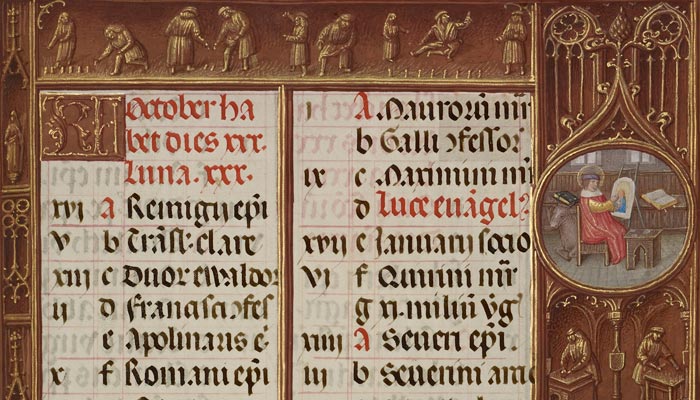
October Calendar Page; Slaughtering and Ox and Grape Harvesting; Libra (detail), Workshop of the Master James IV of Scotland. Tempera colors, gold, and ink on parchment. J. Paul Getty Museum.
The Invention of Time: Mechanical Clocks and the Age of the Manuscript
ONLINE ONLY
This is a past event
The early 14th century was a revolutionary moment in the history of timekeeping, when the first mechanical clocks were invented and hourglasses first appeared in the historical record. The era coincided with the popularization of a type of book called a "book of hours," which helped segment hourly, daily, and yearly time for its owners. These technologies radically changed how people structured personal and communal time, conducted business, and fashioned worldviews. In this conversation, professor Elly Truitt and curator Larisa Grollemond discuss the intersecting histories of many types of time-keeping technologies, from manuscripts to clocks, exploring how time was described and experienced in the Western medieval world. This program complements the exhibition Transcending Time: Medieval Book of Hours.
Elly R. Truitt, associate professor in the history and sociology of science department at the University of Pennsylvania, has published and spoken widely on the history of medieval science. Her recent book, Medieval Robots: Mechanism, Magic, Nature, and Art, explored the history of automata in medieval Latin culture, including their use in early mechanical clocks. Her work has been recognized by Max-Planck-Institute for the History of Science, the Andrew W. Mellon Foundation, and the Huntington Library, among other institutions.
Larisa Grollemond is assistant curator in the department of manuscripts at the J. Paul Getty Museum. She is the curator of the exhibition Transcending Time: Medieval Book of Hours and was a contributing editor and author for Book of Beasts: The Bestiary in the Medieval World.